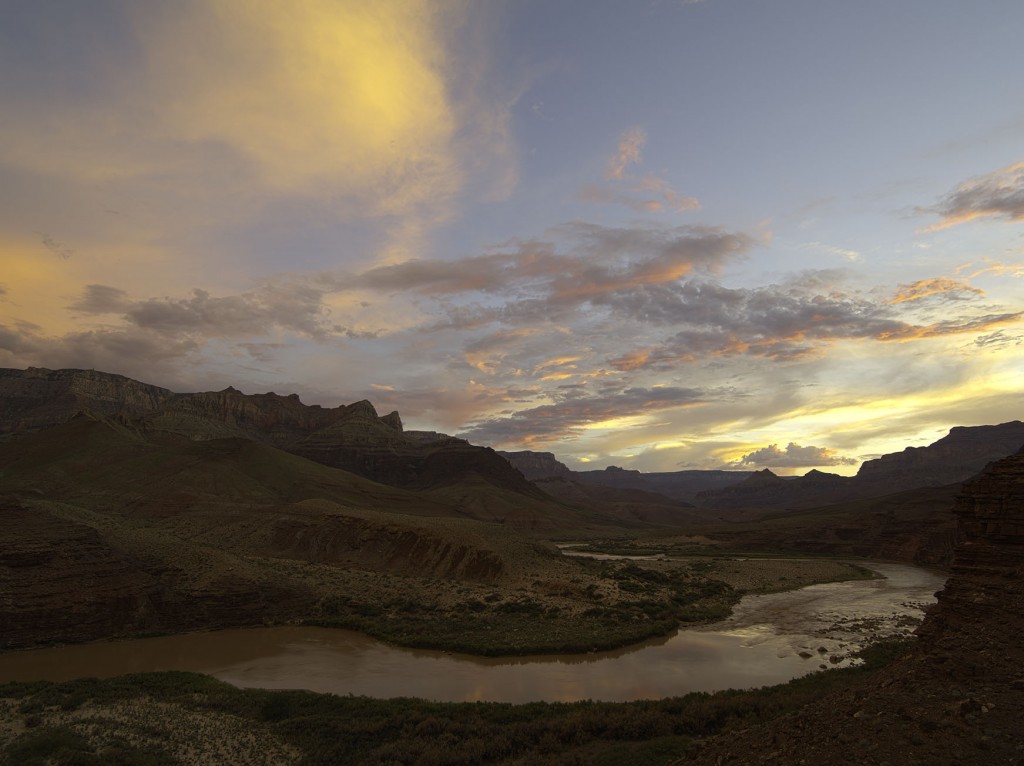A few days ago a friend showed me this video.
I am sure many of you have already seen it, as it is currently trending toward 13 million views on YouTube, but in the event that you have yet to see it, here’s the back story: An organization called SOS MAYDAY set up a hidden camera at a bus-stop in Oslo, Norway where they placed a young boy, Johannes, without a jacket. In the next two minutes, the video depicts a number of people shedding their own coats, scarves, and gloves to cover the shivering boy. The video ends with a question, one that has refused to leave my thoughts.
“Are you a person who would act when you see someone who needs help?”
Although I’ve only lived in Flagstaff, Ariz. for a month now, I am beginning to understand the local cliche that Flagstaff is poverty with a view. In response, I would like rephrase the question from the video.
“Are we a company that will act when we see a community in need?”
Before starting at Grand Canyon Whitewater, I had the opportunity to study for a semester at the University of the South Pacific in the Fiji Islands. I studied tourism under Dr. David Harrison, a literal walking textbook of knowledge. His course was titled Tourism in Less Developed Countries and was certainly the most informative course I took while abroad.
“Pro-poor tourism” was a term that failed to escape Dr. Harrison’s lips less than a dozen times each week. Harrison taught that tourism yields an unmatched capacity to alleviate poverty and generate economic and environmental benefit. You see, tourism involves what economists have termed “income multipliers.”
In contrast to most local business ventures, tourism relies on drawing revenue from visitors. This is what economists call an economic injection. That money is then distributed to employees in the form of wages, who in turn spend that money within the local community, creating an income multiplier effect that can result in better wages and more jobs. Without fiscal injections provided by external economies, it is difficult for the money of a given economic system to increase beyond that which already exists. With that in mind, harnessing the power of tourism-generated revenue is critical for improving our economic system.
However, if not implemented carefully, tourism can have an equally devastating impact on both the economy and on the environment. The question then is not only, “How can we attract more tourist dollars?” but “How can we keep those tourist dollars here?” and “How do we then direct that stream of revenue in a way that most effectively alleviates poverty in our area?”
With an endless supply of cheap labor filtering through Flagstaff in the form of college students and transient 20-somethings, how can we, as a community, raise the quality of life for those who live here? Instead of opposing our city government, as many do, for bowing down to the tourist dollar, we must embrace tourism as a tool for economic development.
So where do we start? Here in Arizona, our tourism relies almost entirely on our environmental resources. If those resources are not properly protected, we can kiss tourism and its associated economic benefit goodbye. I tend to agree with Jeff Welch at Mercury CSC in his article, “Outdoors Needs a Champ. Looking at you, Tourism.” According to Welch, tourism is the second largest economic driver in the state of Montana, yet tourism operators often fail to protect their largest asset – nature. From what I understand, tourism holds a similar economic position in Arizona, and at a time when our state is experiencing disturbingly low water levels in both Lake Powell and Lake Mead, it’s time that we take action as the leaders in our industry.
As a tourism operator in the great state of Arizona, I feel we are obligated to leverage our position to protect our natural resources and to benefit those in need. That is why we do things like collect donations from our passengers for organizations that protect and conserve the Grand Canyon. But is that enough? Certainly not.
As a locally owned and operated company, we desire to participate in the renewal of our natural resources and in the economic growth of our community. We may not be large enough to simply provide a hand-out, but we are extremely interested in offering a hand-up. So in closing, my question is, “How can we work together to conserve our natural resources and in turn improve your quality of life?”


































